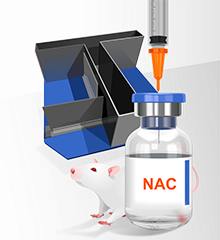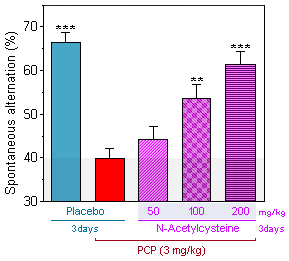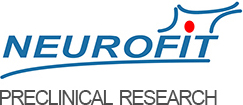improves cognitive symptom of Schizophrenia
Newsletter # 96

In vivo studies
■ Neurofit found that in the preclinical model of Schizophrenia, Phencyclidine (PCP) induced cognitive deficit in mice, 3-days treatment with NAC improves the symptom in a dose-dependent manner. This finding further supports the therapeutic benefit of NAC in Schizophrenia.
2: https://doi.org/10.1016/j.pnpbp.2017.11.001
-

***, p ≤ 0.001 significantly different as compared
to PCP / Placebo group (n = 10 mice per group) -
Enhanced cognitive performance in PCP-mice following NAC treatment
■ The graph shows the cognitive performance of mice as measured by their spontaneous alternation in the T-maze. PCP-induced deficit is evidenced by the decrease in the spontaneous alternation of mice (blue vs red column), because of stereotyped and perseverative behavior on the visit of the same arm of the T-maze.
■ Such a symptom is also common in schizophrenic patients.
https://doi.org/10.1016/j.schres.2006.01.024
Get in touch


 PREVIOUS
PREVIOUS